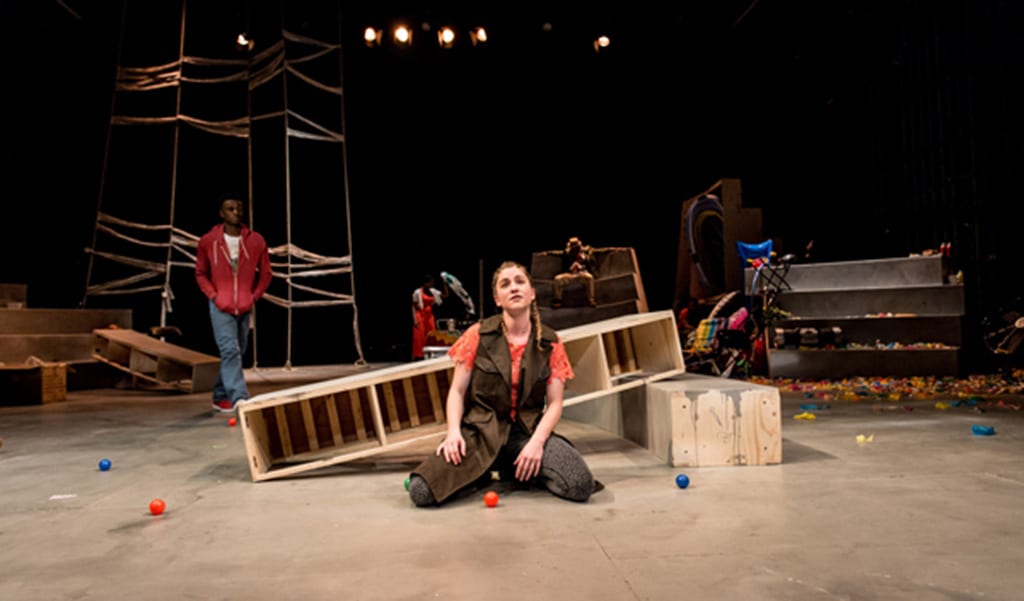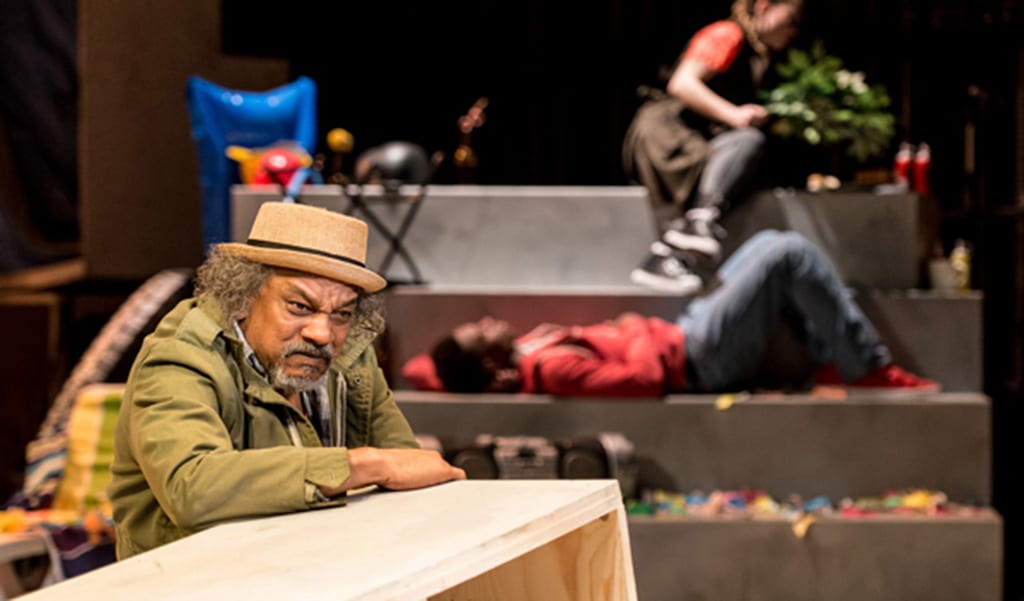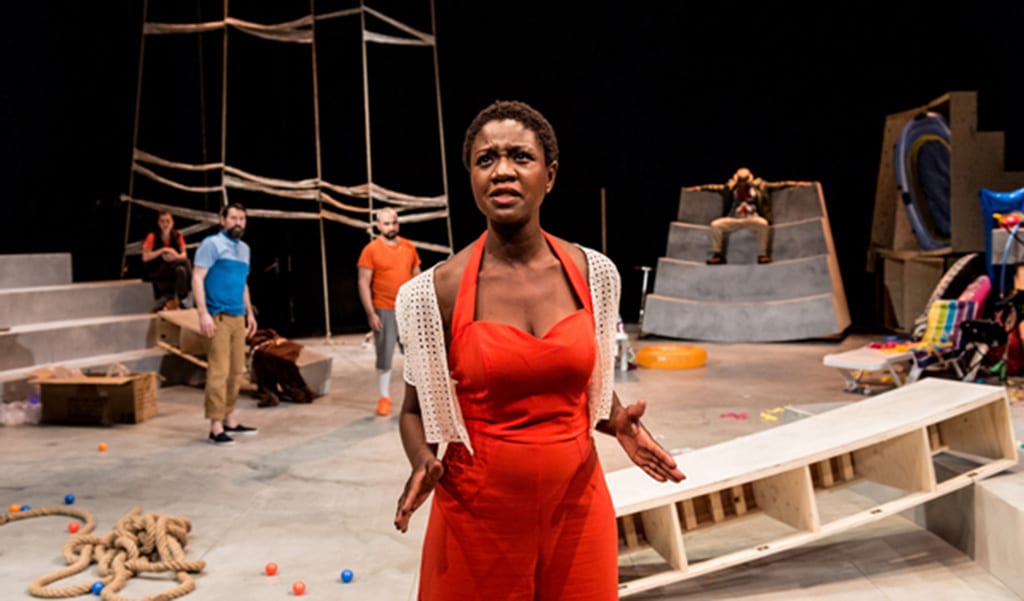Some three thousand years after the writing of The Odyssey, British-based playwright Timberlake Wertenbaker, winner of the 2016 Writer’s Guild of Great Britain Best Play Award, has brought her modern script based on Homer’s epic poem to the Unicorn Theatre.
Aimed at children aged 11-16, this light-hearted performance presents strong messages with frequent comic interludes, some of which are more successful than others. An immediate impression is made on the audience by the modern and adaptable set designed by Louie Whitemore. The action takes place in a contemporary swimming pool area, equipped with an inflatable dinghy, blasting boom box and portable gas-fired barbeque. Penelope’s suitors, who are portrayed as ‘chavs’, exchange comments like ‘what’s a quote?’ and ‘where’s the drink?’. This is the introduction of a running theme throughout; the immaturity and irresponsibility of men. The goddess Athena, played by Belgian soap star Charlotte De Bruyne, soon advances this theme by speaking to the audience. She exclaims that men and boys ‘are sort of the same from my point of view.’ By contrast, Penelope, who is seen faithfully placing cloth onto a scaffolding-like structure in the background throughout, to symbolise her endless tapestry from Homer’s poem, is portrayed as the epitome of loyalty. Ginny Holder’s Penelope is one of the highlights of the performance. Uninterested in the suitors’ games and sexism, she expresses her dissatisfaction of her position, in which she is oppressed by much less intelligent men, with a combination of wisdom and humour.
Experienced Shakespearian actor Jeffery Kissoon plays a philosophical and contemplative, yet childish Odysseus, whose full complexities of character are brought out with care. He wins over the sympathy of the audience whilst being the nostalgic and homesick old man who is lost on a desert island. However, his flaws are exposed through the revelation of his multiple affairs with goddesses Kalypso and Circe, contrasted with Penelope’s marital fidelity. The similarities between him and his son, and protagonist, Telemachus, played by up-and-coming actor Theo Solomon, are shown through the idealisation of each other in their imagination (they had never met before). They were both mistaken in their fantasised notion of one other, and Athena explains this inaccuracy through her soliloquy, when she describes the subtle yet important difference between illusion and imagination. Men, she argues, have illusions; they glorified war, an intrinsically futile exercise charged with masculine bloodlust, whereas women have imagination; they can ‘give because they can imagine what it is like not to have’.
A mostly youthful audience is engaged throughout by the young Telemachus in his pink hoodie and jeans, who is convincing in his part as a son in his father’s shadow. Struggling to find a personal identity, he battles between his juvenile identification with the suitors and his loyalty to his undermined mother.
Unlike the subtleties of the messages in this new play, the comedy was far from understated. The two suitors, played by Guy Rhys and Ben Adams, are a comic duo that successfully engages the audience with their Pythonesque humour. A pantomime style fight scene near the end of the play is an example of this absurdity, with ketchup bottles being unashamedly being used as a prop for blood. Unfortunately, some of the jokes seem too desperate to connect with a young crowd, such as the weak Harry Potter jibe. However, overall few jokes fall flat, and the audience enjoys the jocular mood.
The plot does seem to jump around quite arbitrarily and abruptly at times, due to the lack of accordance with the original text. As a result the nuances of Odysseus’ relationship with Athena, an important character in driving the plot, are missed. The occasional line attempting to fill in the gaps is not enough to make up for this lack of detail, however the general message of the play comes across nonetheless.
My Father Odysseus is a play, which may not have the beautifully crafted language of Homer’s ancient poem, but is a creative and fun production that seems as enjoyable for the actors as it is for the audience.




